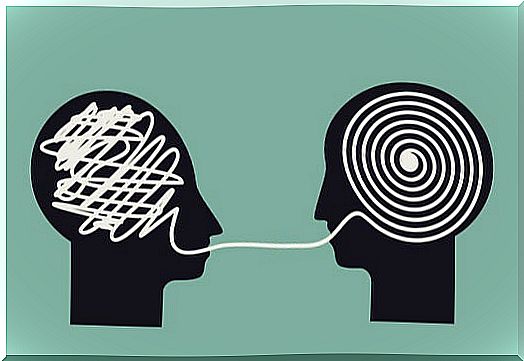People Who Know How To Listen Also Need To Be Heard

We all value people who know how to listen. We appreciate your emotional hospitality, your authentic empathy, your ability to validate our words, stories, and feelings. However, we need to remember a simple aspect: who knows how to listen, who is there for us whenever we need it, also needs to be heard from time to time.
This topic is more important than we might think at first. Carl Rogers, renowned humanistic psychologist, said that the basis of any healthy relationship lies in active listening, in the ability to listen to each other effectively. However, more and more people are going to psychological therapy to feel heard ‘for the first time’.
There are those who stand as that always accessible figure to which everyone comes to share with them their concerns, problems and anxieties. They are refuge people who, curiously, do not usually find theirs when they need it. Moreover, there are many people who are so used to listening to others that they end up hiding their needs, hiding in the convolutions of the conch shell of silence.
Little by little, it is easier for them to let others speak than to ask for silence for a moment, just for a moment, to reveal what they feel, to say out loud that they too have concerns and would like to be taken care of. They are very common situations that should invite us to a heartfelt reflection.

Listening people don’t always know how to ask for help
Some of the people who know how to listen have become used to not being listened to. This data may seem striking to us, however, it is a reality very similar to that of those who have become accustomed to turning to theirs without receiving anything in return. There are many types of invisibility, and the one where you have no one to open up to, despite being the classic refuge figure that everyone goes to, is undoubtedly one of the most common.
Sooner or later, these people end up going to therapy because they need a sincere listener. After all, we all need our stories to be heard. Each of us deserves emotional support to turn to to be honest. Thus, the fact of not having someone valid to do it with is highly painful.
However … why do these situations occur? Is it a problem only for those who have become used to listening and are not assertive to ask for what they need or are we perhaps facing a type of relational egoism? Let’s analyze the possible causes.
Narcissistic verbiage
This reality is very common among couples and even friends. There is always someone accustomed to pouring every thought, every anecdote, occurrence or problem of a different nature onto another. Communication takes place in only one direction and through narcissistic verbiage. There where the interlocutor is not taken into account, there where to drop an almost compulsive monologue and completely lacking in empathy.
These types of situations show a clearly harmful type of relationship. The most striking thing is that the one accustomed to using the other as a ‘container’ of his verbiage, always praises those people who know how to listen. Hence, they do not skimp on flattery such as ‘ what would I do without you? It is clear that nobody understands me like you do. ‘

The person who is afraid of being judged
In a study carried out at the School of Psychological Sciences at the University of Manchester (United Kingdom), Dr. Pamela Fitzerald demonstrated a fact that most of us can understand very well. When a person goes to psychological therapy, he values first of all a simple aspect: knowing that he says what he says, he will not be judged or criticized for it.
Something like this makes us understand that many of those people who know how to listen, but who in turn avoid being honest with others, often do so out of fear of criticism . Perhaps certain past experiences deprived them of that safe environment where they feel heard and validated, perhaps the weight of criticism received at certain times prevents them from opening up to others.
Sometimes listening is easier than communicating
Another factor that explains why some people prefer to listen to communicate is defined by their personality style. The introverted profile often stands as that ideal someone to whom to turn in privacy to explain our experiences and thoughts. However, he or she rarely tends to do the same and if he or she does, he or she chooses very select people.
Listening is often easier for many people than communicating. It only requires active listening, a look that understands and being a close presence, nothing more. However, the act of opening up to the other to express thoughts, to reveal facts or confidences already requires other types of skills than for certain types of personality, it is not easy or it cannot be done with just anyone.

We all deserve to be heard: it is an act of emotional hospitality
People who know how to listen also deserve to be heard. If we have that someone who is always there for us, let us remember to practice that reciprocity where we are able to give the same thing that they offer us. That friend, that co-worker or that family member may find it more comfortable to be a listener than a communicator, but be that as it may, we must create safe environments where we allow them to speak when they need it.
To conclude, let us remember that listening is much more than allowing the other to speak while we think about what we are going to say … Human communication is also an act of hospitality where we welcome the words of the other and make them our own, it is connecting to protect, it is giving refuge to provide who we have in front of security, understanding and empathy. Let us therefore learn to practice active listening on a daily basis.









